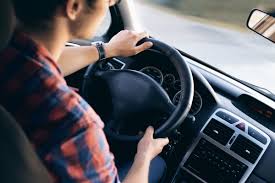 Thousands of people each year are affected by driver anxiety, regardless if they are a learner or an experienced driver.
Thousands of people each year are affected by driver anxiety, regardless if they are a learner or an experienced driver.
Vehphobia is the term coined to explain the condition. The term means a persistent or reoccurring fear of driving. Symptoms vary from person to person and by the situation. The most common is a fear of driving on the motorway. Less well-known fears include passenger and parking anxiety. This condition can affect anyone from the everyday commuter to professional drivers.
Driver anxiety can be associated with panic and erratic driving behaviour, such as sudden stopping, driving slowly or driving close to the edges of the road.
It is important that if the condition is serious to impair judgment that the DVLA are informed.
Those who have Vehphobia say their quality of life is impaired. May cite having to meticulously plan any journey to avoid any trigger roads-motorways, A roads, hill starts, sharp corners. Those with extreme cases give up driving altogether.
 So what causes this?
So what causes this?
As with generalised anxiety, the cause varies wildly. Triggers can arise from a traumatic event, a stressful situation/time, a predisposition for anxiety, change of vehicle/journey, driving with passengers or a new baby, or by roadworks.
Imagine that you are driving along and suddenly someone cuts you up. Immediately your body goes into fight or flight mode as a shot of adrenaline is pumped around your body. Now, you are in a car, so you cannot flee, neither can you fight. You take a couple of deep breaths, perhaps turn the music up to calm yourself and allow your body to settle. All of this is fine and perfectly normal, but what if it happened on your way home as well, the next day, and then several times a week for the next year? What if on a particularly stressed day? This build-up could lead to a serious problem. The point here is that some will have driving anxiety from an accident, but most develop it because of numerous small events.
 Can hypnotherapy help?
Can hypnotherapy help?
Hypnotherapy has a strong positive history when it comes to helping those with anxieties. Hypnotherapists have several approaches-Neurolinguistic Programming techniques or NLP, Eye movement desensitization and reprocessing or EMDR, and cognitive Behavioural therapy or CBT-which are all designed to produce changes on an unconscious level.
For your safety, both in session and on the road, your therapist will work at an appropriate pace while maintaining your road awareness and comfort behind the wheel.
For your £10 only initial consultation please contact us.
